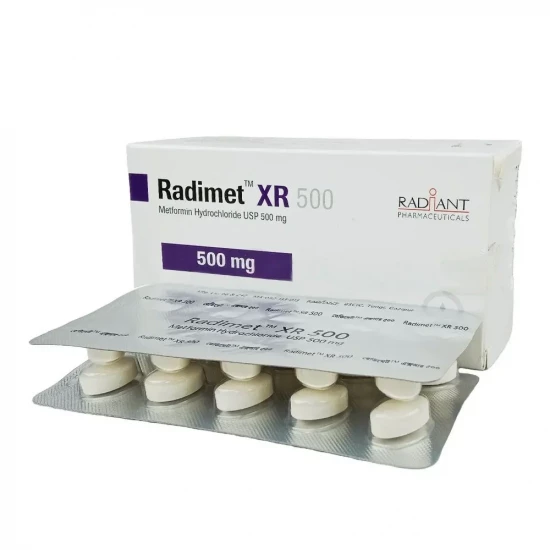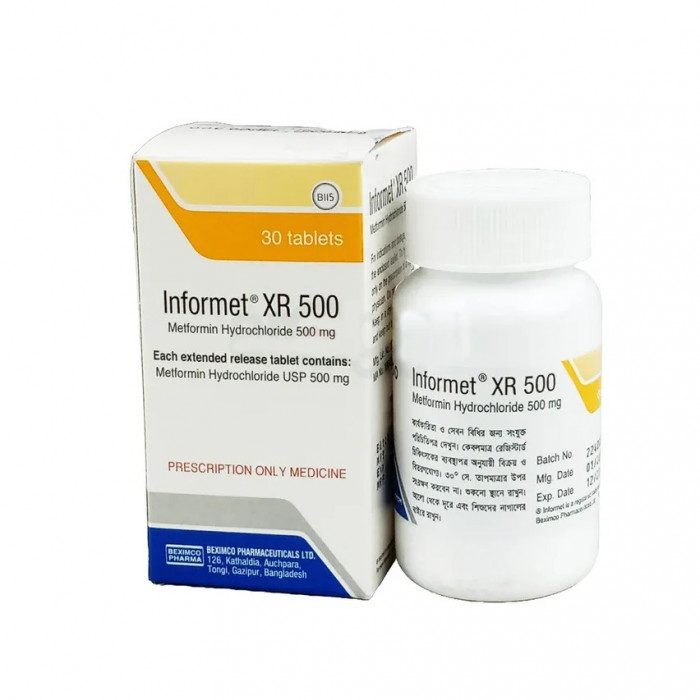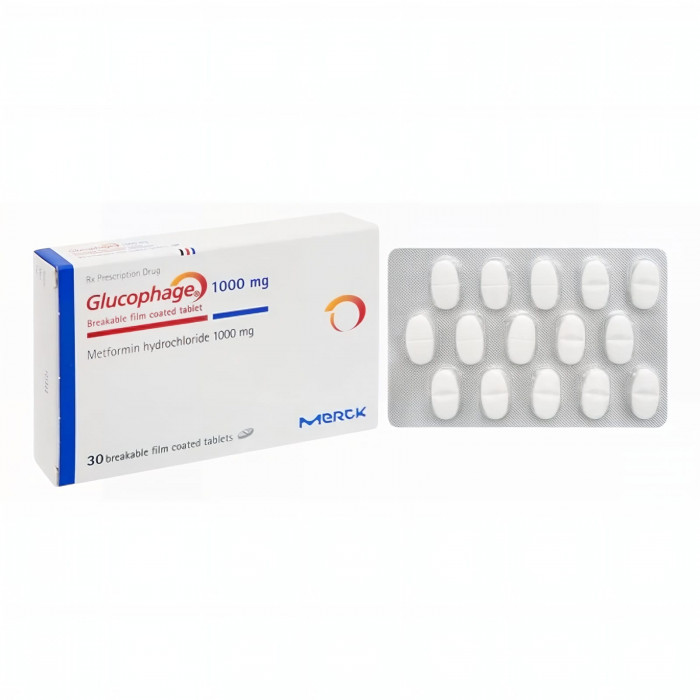
✔ 100% Authentic Product
👁️ Currently Viewing 1401
Sucomet 500mg Tablet
Sucomet 500mg Tablet is an antidiabetic medicine that helps to control blood sugar in people with type 2 diabetes mellitus.
Discount
Price: ৳ 33
MRP:
৳
35
5%
Off

100% Genuine Products, Guaranteed

Safe & Secure Payments, Always

Fast, Secure & Efficient Delivery

Proper Packaging
 Cash on Delivery - All over Bangladesh
Cash on Delivery - All over Bangladesh Regular Delivery - 12-24 Hours, Dhaka City* Charge Tk.39-59
Regular Delivery - 12-24 Hours, Dhaka City* Charge Tk.39-59 Regular Delivery - 24-48 Hours, Other Cities* Charge Tk.99-110
Regular Delivery - 24-48 Hours, Other Cities* Charge Tk.99-110
 ফ্রি ডেলিভারিঃ - ৯৯৯ টাকা+ অর্ডারে, ঢাকা
শহরে
ফ্রি ডেলিভারিঃ - ৯৯৯ টাকা+ অর্ডারে, ঢাকা
শহরে ফ্রি ডেলিভারিঃ - ২৯৯৯ টাকা+ অর্ডারে, ঢাকার
বাহিরে
ফ্রি ডেলিভারিঃ - ২৯৯৯ টাকা+ অর্ডারে, ঢাকার
বাহিরে
100% Genuine Products, Guaranteed
Safe & Secure Payments, Always
Fast, Secure & Efficient Delivery
Proper Packaging
 Cash on Delivery - All over Bangladesh
Cash on Delivery - All over Bangladesh Regular Delivery - 12-24 Hours, Dhaka City* Charge Tk.39-59
Regular Delivery - 12-24 Hours, Dhaka City* Charge Tk.39-59 Regular Delivery - 24-48 Hours, Other Cities* Charge Tk.99-110
Regular Delivery - 24-48 Hours, Other Cities* Charge Tk.99-110 ফ্রি ডেলিভারিঃ - ৯৯৯ টাকা+ অর্ডারে, ঢাকা
শহরে
ফ্রি ডেলিভারিঃ - ৯৯৯ টাকা+ অর্ডারে, ঢাকা
শহরে ফ্রি ডেলিভারিঃ - ২৯৯৯ টাকা+ অর্ডারে, ঢাকার
বাহিরে
ফ্রি ডেলিভারিঃ - ২৯৯৯ টাকা+ অর্ডারে, ঢাকার
বাহিরে
✅ Description:
Metformin is a medication used to help maintain balanced blood sugar levels in the body. It is primarily prescribed to treat Type 2 diabetes but can also be used for other conditions such as heart disorders and polycystic ovary syndrome.
Liver Glucose Production: Metformin reduces the amount of glucose produced by the liver. It suppresses the release of glucose into the bloodstream from the liver. This action lowers blood sugar levels, which is essential for patients with Type 2 diabetes, as their livers tend to produce excessive glucose.
Insulin Sensitivity: Metformin increases the body's sensitivity to insulin. This means that your body can absorb more glucose with the same amount of insulin. Enhanced insulin sensitivity allows the cells to better utilize glucose, further lowering blood sugar levels.
Appetite and Weight: Metformin may also reduce appetite in some individuals and can help with weight loss. Obesity is often a complicating factor in Type 2 diabetes, and losing weight can improve blood sugar control.
- Metformin is used to manage conditions like Type 2 diabetes, obesity, cardiovascular diseases, hypertension, and polycystic ovarian syndrome. By regulating blood sugar levels, it helps prevent complications such as kidney failure, obesity-related issues, and heart disorders.
- It's important to note that Metformin does not increase insulin levels in the body; instead, it primarily targets the liver's glucose production. People with Type 2 diabetes often experience overproduction of glucose by the liver and decreased glucose absorption by the body.
- However, not everyone can take Metformin. Some contraindications and precautions include:
Pregnant women, nursing mothers, and children under ten years old should avoid taking Metformin.
Pre-existing Conditions: Inform your doctor if you have liver disease, kidney disorders, heart disease, allergies, or a history of diabetic ketoacidosis.
The dosage of Metformin prescribed by your doctor will depend on factors like your age, the severity of your condition, and other medications you may be taking. It's essential to follow the prescribed treatment plan diligently and complete the course. If you experience any side effects or have concerns, consult your doctor.
In the case of Metformin overdose, hypoglycemia (low blood sugar) is generally not observed, but lactic acidosis can occur, especially with extremely high doses. Metformin is dialyzable, which means it can be removed from the body using hemodialysis in cases of overdose.
Remember that Metformin is used to control diabetes, but it is not a cure. It should be used in conjunction with other components of your treatment plan, including a prescribed diet, exercise regimen, and other medications if required. Never change your dose or discontinue Metformin without consulting your healthcare provider.
Safety Advices

Alcohol
UNSAFE
It's advisable to avoid alcohol while taking Metformin, as it can increase the risk of lactic acidosis.

Pregnancy
CONSULT YOUR DOCTOR
Sucomet 500mg Tablet should be used during pregnancy only if it is considered necessary by the physician. Therefore, inform your doctor before taking Sucomet 500mg Tablet if you are pregnant, think you may be pregnant, or planning to have a baby.

Breastfeeding
CONSULT YOUR DOCTOR
Sucomet 500mg Tablet is not recommended for use in breastfeeding women. However, consult your doctor before taking it.

Driving
CAUTION
Do not drive or operate any heavy tools or machines if your ability is affected by Sucomet 500mg Tablet

Kidney
CONSULT YOUR DOCTOR
Sucomet 500mg Tablet is not recommended for use in patients with severe kidney problems (including kidney infections). Therefore, consult your doctor before taking it.

Liver
CONSULT YOUR DOCTOR
Sucomet 500mg Tablet is not recommended for use in patients with severe liver problems. It should be used with caution in patients with other liver problems. Therefore, consult your doctor before taking it.
✔️ Uses of Sucomet 500mg Tablet
- Type 2 Diabetes Mellitus
✔️ How does Sucomet 500mg Tablet work?
Sucomet 500mg Tablet works by decreasing the production and absorption of glucose in the liver and intestine, respectively. It also improves the sensitivity of insulin by enhancing the uptake and utilization of glucose.
✔️ Side Effects of Sucomet 500mg Tablet
Common side effects include gastrointestinal issues (nausea, vomiting, diarrhea, stomach pain, and loss of appetite), taste disturbances, and a decrease in vitamin B12 absorption. Lactic acidosis is a rare but serious side effect. Other side effects may include hemolytic anemia, encephalopathy, skin reactions, and hepatic function abnormalities.
✔️ Quick Suggestions:
- Consistency in meal timing is crucial for managing blood sugar levels. Try to eat your meals and snacks at the same time each day. This helps in stabilizing blood sugar and prevents spikes or drops.
- Keep an eye on your weight, and work towards achieving or maintaining a healthy weight. Weight management is essential for overall health, especially for individuals with diabetes or those at risk of heart disease.
- Engage in regular physical activity. Exercise has numerous benefits, including improving insulin sensitivity, managing weight, and promoting heart health. Consult your healthcare provider for an exercise plan that suits your needs.
- Your doctor will guide you on how to monitor your blood sugar levels at home. Regular monitoring allows you to track changes and take appropriate actions if your levels are too high or too low.
- Your healthcare provider will recommend regular blood tests to monitor your blood sugar levels. These tests help assess how well your treatment plan is working and if any adjustments are needed.
- Drink an adequate amount of water throughout the day. Dehydration can affect blood sugar levels and overall health.
- High stress levels can impact blood sugar control. Practice stress-reduction techniques like mindfulness, meditation, or deep breathing exercises.
- Take your medications exactly as prescribed by your doctor. Skipping doses or changing the dosage with
✔️ Indication
Metformin is used for the treatment of type 2 diabetes mellitus, especially in overweight patients when diet and exercise alone are insufficient for glycemic control. It can be used alone or in combination with other oral antidiabetic drugs or insulin in adults. Metformin can also be administered to children and adolescents as young as ten years old.
✔️ Pharmacology
Metformin belongs to the biguanide class and is used to lower both baseline and postprandial plasma glucose levels in type 2 diabetic patients. It enhances insulin sensitivity, increases peripheral glucose uptake and utilization, reduces hepatic glucose production, and lowers intestinal glucose absorption. Unlike sulfonylureas, metformin does not cause hypoglycemia.
✔️ Dosage & Administration of Sucomet 500mg Tablet
Metformin comes in immediate-release and extended-release tablet forms. The dosage should be individualized based on effectiveness and tolerance, without exceeding the maximum recommended daily doses.
Adults: The usual starting dose for immediate-release metformin is 500 mg twice a day or 850 mg once a day with meals. Dosage increases can be made in increments of 500 mg weekly or 850 mg every 2 weeks, up to a total of 2000 mg per day. For those requiring additional glycemic control, doses may be increased to a maximum of 2550 mg per day.
Children: The usual starting dose for immediate-release metformin in children is 500 mg twice a day with meals, with dosage increases in increments of 500 mg weekly, up to a maximum of 2000 mg per day.
Metformin extended-release tablet: Swallow whole, and do not crush, cut, or chew.
✔️ Interaction
Metformin's clearance may be affected by certain drugs, such as topiramate and zonisamide, which can raise the risk of lactic acidosis. Alcohol can amplify metformin's effect on lactate metabolism.
✔️ Contraindications
Metformin should not be used in individuals with hypersensitivity to the active ingredient or any excipient, acute metabolic acidosis, severe renal impairment (eGFR <30 mL/min), dehydration, severe infection, shock, conditions causing tissue hypoxia, hepatic insufficiency, acute alcohol intoxication, or alcoholism.
✔️ Pregnancy & Lactation
Metformin use during pregnancy may increase the risk of congenital malformations and perinatal mortality. Insulin is preferred for managing diabetes during pregnancy. Metformin is excreted in breast milk, and its safety during breastfeeding is not well-established.
✔️ Precautions & Warnings
Metformin is eliminated through the kidneys, so the risk of metformin accumulation and lactic acidosis increases as renal function declines. It may lower vitamin B12 levels and increase the risk of hypoglycemia when used with insulin or insulin secretagogues.
✔️ Storage Conditions
Store below 30°C, away from light and moisture, and out of reach of children.
⚠️Disclaimer:
At ePharma, we’re committed to providing accurate and accessible health information. However, all content is intended for informational purposes only and should not replace medical advice from a qualified physician. Please consult your healthcare provider for personalized guidance. We aim to support, not substitute, the doctor-patient relationship.


























